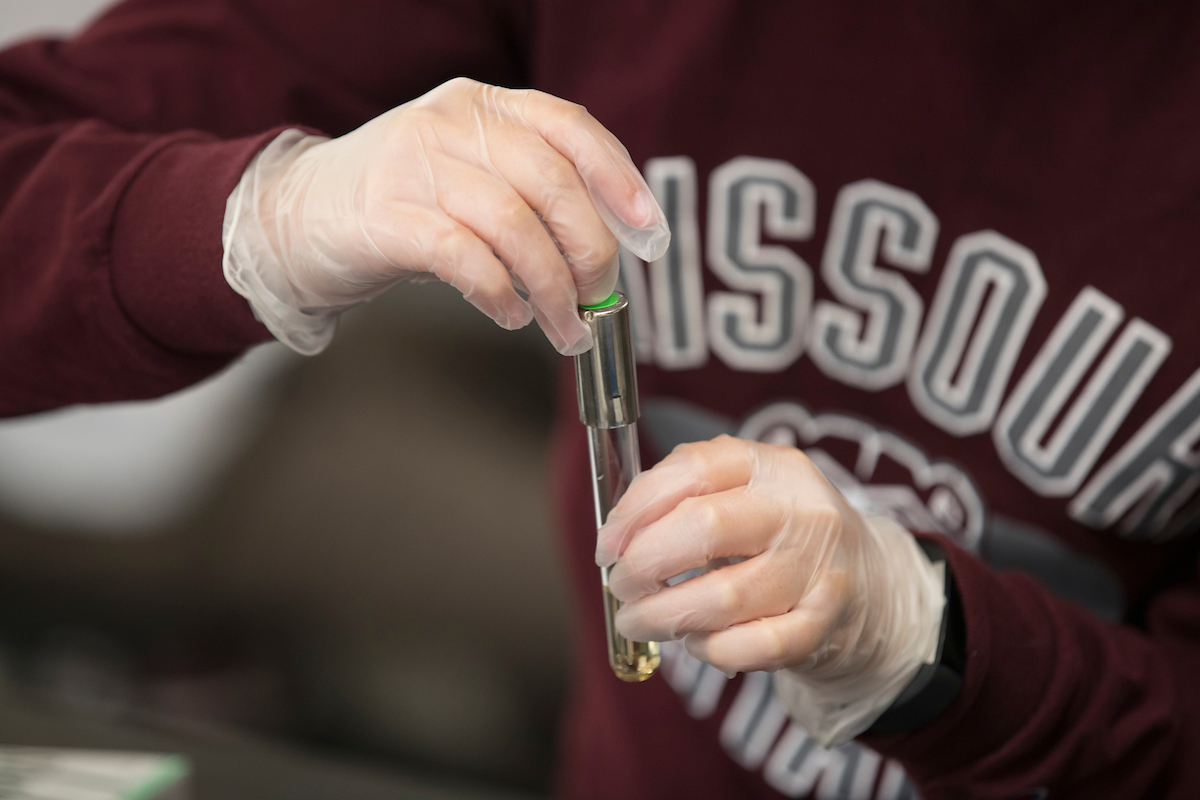Last winter, the first Roy D. Blunt Life Science Professors began four-year appointments, and Dr. Ridwan Sakidja, professor of physics, astronomy and materials science, was named the Matthew and Patricia Harthcock College of Natural and Applied Sciences Faculty Fellow.
Updates from the Blunt Professors
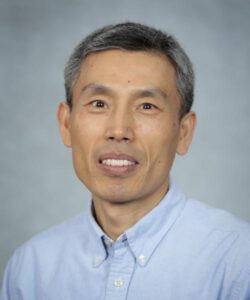
The Blunt Professors are funded by a $3 million grant from the United States Department of Education with the goal of supporting the research, teaching and service of STEM scholars.
Dr. Kyoungtae Kim, professor and interim department head of biology, Dr. Gary Michelfelder, associate professor in the School of Earth, Environment and Sustainability, and Dr. Steven Senger, associate professor of mathematics, officially began their appointments as Blunt Professors on January 17, 2023.
One year in, they report that the Blunt Professorships have made a significant difference in their work — and for the opportunities they’re able to provide students.
For example, Kim says, “I’ve spent the past year doing things that I would not have been able to do otherwise, including working with two undergraduate students on cutting-edge research throughout the year and presenting my research at several different external conferences.”
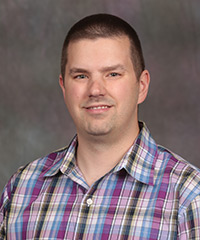
Senger agrees, saying that the extra funding has accelerated the pace of his research. “In the past, I’ve had to budget very carefully — picking one or two conferences to travel to and counting on my collaborators to help pay for any additional visits,” he says. “With the support of the Blunt Professorship, I’ve been able to travel more, which has led directly to more publications in higher-ranked journals and more student mentoring.”
According to Michelfelder, the benefits to students are one of the most important aspects of his Blunt Professorship. “I’ve been able to support student research — both graduate and undergraduate — allowing them to expand their networks and experience,” he says. “This makes them better prepared to enter the professional world.”
Raising Awareness and Enhancing Public Well-being
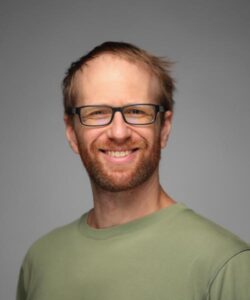
With this enhanced level of engagement, Senger has experienced increased visibility for his work. “My colleagues have invited me to more prestigious opportunities, including some conferences with a limited number of attendees,” he says. He’s also received invitations to write books and an article in the newsletter of the American Mathematical Society, and he was able to travel to Vietnam, where he collaborated with colleagues and students. This kind of activity, he says, is one way of “lifting up Missouri State’s profile as a research institution.”
Like Senger, Michelfelder has seen how funding from his Blunt Professorship extends the university’s reach. “It’s provided opportunities to hire students and expand my research to new areas that would otherwise be impossible,” he says. “It’s brought new collaborations — giving Missouri State an international presence in the geosciences, including new connections in Chile, Spain, Guatemala and the British Overseas Territory of Montserrat.”
Kim says the funding also pays dividends for the public good. “The focus of my research is to continue to develop substances that deliver cancer-fighting drugs and to continue basic research that can be used in the clinic,” he says. He’s currently researching and preparing grant submissions that will add further support to this goal.
“I believe that preparing for a grant has many productive effects beyond the actual grant,” Kim says. “I have a philosophy that the product of a day’s work is a grant, the product of a grant is papers and presentations, and the product of dissemination is human well-being.”
Update from the Harthcock Fellow
Sakidja says that his role as the Harthcock Fellow has had a similar effect on the scope of his research and teaching.
“The appointment helps me in immersing and integrating state-of-the-art advances in AI — not only in our materials research portfolio, but also in our materials science and physics curricula,” he says. “Currently, AI is by far the most disruptive technology. We want our students to take full advantage of this new technology to accelerate the learning process. We also want them to leverage this knowledge to become highly competitive in seeking jobs and securing higher learning opportunities.”
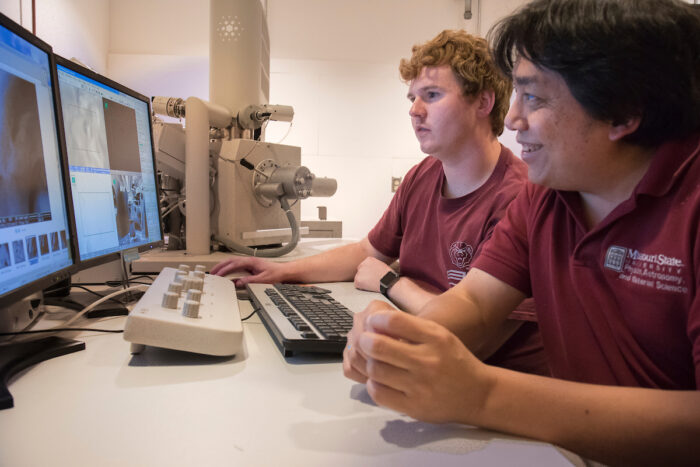
Dr. Tamera Jahnke, dean of the College of Natural and Applied Sciences (CNAS), says funding from sources like the Blunt Professorships and the Harthcock Fellowship is a game changer.
“These awards change the lives of faculty and the students they teach and mentor by providing additional resources for travel and supplies,” Jahnke says. “All professorships and fellowships are helping faculty advance in their careers while providing exceptional experiences for students in STEM.”
Jahnke says that CNAS plans to announce two more Blunt Professors later this month. Additional Blunt Professorships, specifically within the McQueary College of Health and Human Services, are anticipated to be named later this year.
Around Campus…
Last month, Missouri State announced a new collaboration — one that creates more scholarship opportunities for students. The university is now working with Great Jobs KC (GJKC) and its KC Scholars Scholarship Program.
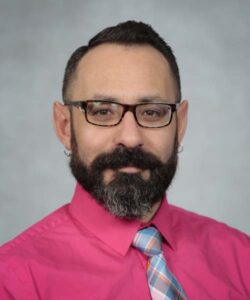
Thanks to this partnership, KC Scholars scholarship award recipients will receive funding from both GJKC and Missouri State. The university will further support the program by offering a university scholarship to individuals who apply for but do not receive the traditional scholarship.
In a release about the partnership, President Clif Smart says it reaffirms Missouri State’s “commitment to fostering academic success and professional growth for students and the community.”
Dr. Ryan Reed, director of access and success programs, says, “We’re excited to empower hundreds of students by providing them with access to educational opportunities we know can be transformative for them, their families and their communities.”

